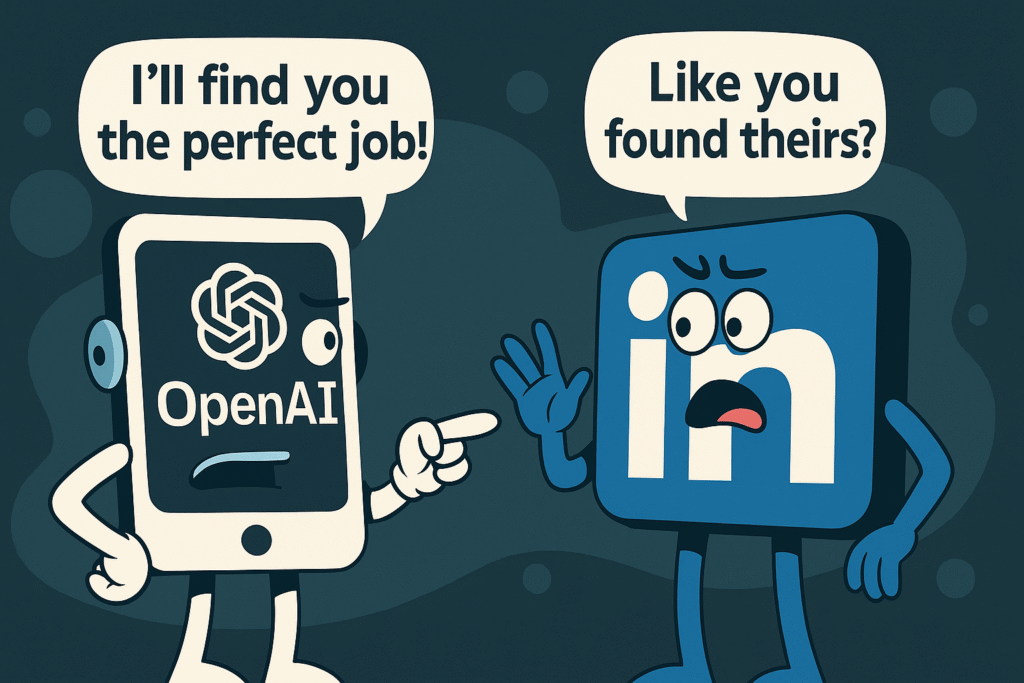Alibaba’s new AI model shakes the world! Faster, cheaper, smarter — China plays its trump card in the AI race against the US.
America sneezes, and the tech world catches a cold. But this time, China served the flu shot first. Alibaba just pulled out an AI Ferrari, priced at the cost of a scooter. And the world? Jaw dropped, wallet checked.
The Global Tech Wrestling Match
The US and China’s tech rivalry has always been a spicy Netflix drama. From 5G to semiconductors, both sides have been flexing like over-enthusiastic gym bros. Now, the newest battle arena is Artificial Intelligence — the brainy kid on the block that everyone wants on their team.
In this match, China’s Alibaba Cloud just body-slammed headlines by launching Qwen3-Next-80B-A3B, its fastest and most cost-effective AI model yet. Reports from the South China Morning Post highlight just how disruptive this move could be.
What Makes Alibaba’s AI Model Special?
Let’s break it down without frying your circuits:
- Speed Demon: Qwen3-Next is said to be 10 times faster than Alibaba’s earlier Qwen3-32B model. Imagine Usain Bolt on an energy drink, and you’ll get the vibe.
- Wallet-Friendly: It costs 90% less to train compared to older versions. In money terms, around $500,000 (₹4 crore) — which is practically a steal when compared to Google’s Gemini Ultra that gulped nearly $1.6 billion (₹1600 crore) in costs.
- Compact but Mighty: Though 13 times smaller than Alibaba’s largest AI model, it packs enough punch to run with the big boys. Small size, big attitude.
How Does It Work? (Without Making You Yawn)
Two geeky words: Mixture-of-Experts (MoE).
Instead of one giant brain doing all the work, the model splits tasks among 512 “experts.” Think of it like an Indian wedding buffet: you’ve got the chaat guy, the biryani chef, and the dessert uncle — each handling their specialty. But here’s the trick — only 10 experts are active at a time. That means it saves energy and still delivers Michelin-star performance.
And then there’s Gated-DeltaNet, a shiny new technique first explored by MIT and NVIDIA. This helps the AI decide what information is valuable and what’s just digital gossip. Result? Faster answers, fewer wasted resources.
Comparing with the West
Let’s put Alibaba’s Ferrari against America’s supercars:
- Google Gemini Ultra: Hugely powerful but costs more than Bollywood’s entire weekend box office.
- xAI’s Grok 4: Elon Musk’s creation, built at a staggering $4.1 billion. Great brainpower, but it eats money like popcorn at a cricket match.
- Alibaba’s Qwen3-Next: Tiny budget, big muscles. It’s like finding out your neighborhood chaiwala serves better coffee than Starbucks.
Why the Fuss?
Because AI = Power. Whoever dominates AI will influence everything — from economy and defense to healthcare and education. And in this tug-of-war, China just showed it can punch above its weight without emptying the treasury.
Plus, the model’s quick adoption speaks volumes. Within 24 hours of launch, Qwen3-Next was downloaded over 20,000 times on Hugging Face, the global playground for AI models. Clearly, it’s not just a Chinese headline stunt — the world is genuinely interested.
The Hidden Message to the US
Beyond the shiny numbers, this is a political chess move. By offering a low-cost, high-power AI, China is telling the US:
“Sure, you have the flashiest toys. But we can make smarter, faster, and cheaper versions before your coffee cools down.”
This is not just about AI bragging rights. It’s about setting the tone for global AI standards — and influencing how smaller countries adopt this technology.
But, Is It All Rosy?
Hold your applause. Every AI breakthrough comes with its baggage:
- Ethical Concerns: Faster and cheaper AI also means faster and cheaper ways to misuse it. From deepfakes to disinformation, the risk only grows.
- Data Transparency: Chinese tech giants aren’t exactly known for open data policies. Will Alibaba share enough to build global trust?
- Competition Catch-up: The US isn’t going to sit quietly. Expect counter-punches from OpenAI, Google, and xAI.
Why You Should Care
Even if you’re not an AI engineer or a policy geek, this matters to you. Why? Because AI is about to decide what news you read, what products you buy, and maybe even how your boss evaluates your performance.
Alibaba’s move proves that the next generation of AI won’t just be about who has the biggest tech wallet. It’ll be about who’s clever, resourceful, and scrappy enough to innovate at scale.
Or to put it simply: in the AI world, jugaad just went international.
Alibaba basically made an AI Ferrari at the price of a scooter — and yes, it runs faster than your WiFi after a router restart.
🚀 What do you think? Will Alibaba’s AI Ferrari outpace America’s billion-dollar supercars? Drop your thoughts in the comments, share this with your tech-obsessed buddy, and stay tuned for more witty takes on the AI race.
Suggested Related Post
👉 “OpenAI’s LinkedIn Killer: AI Will Now Find You a Job (Or Steal It)”













